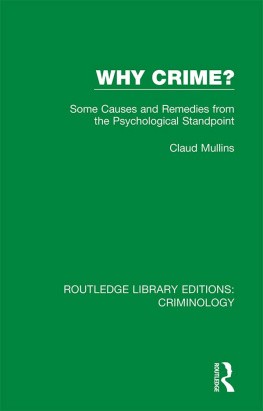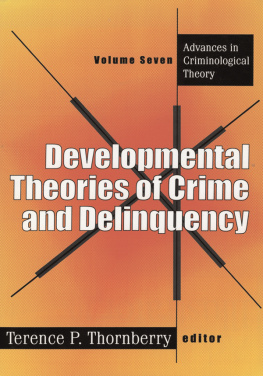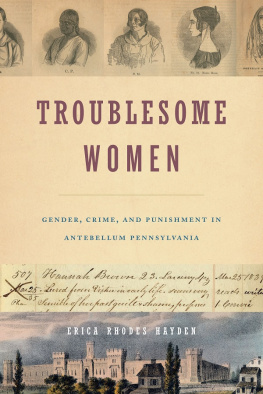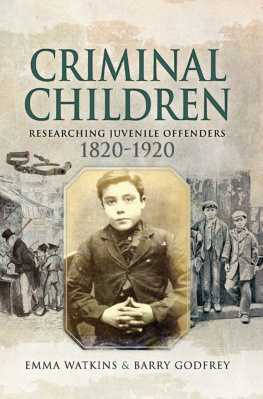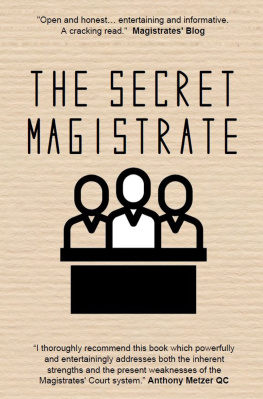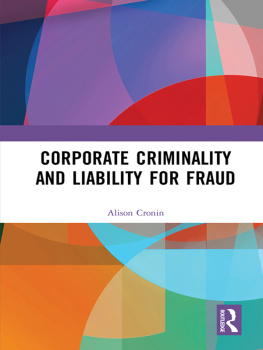First published in 1945 by Methuen
Second edition published in 1947
This edition first published in 2019
by Routledge
2 Park Square, Milton Park, Abingdon, Oxon OX14 4RN
and by Routledge
52 Vanderbilt Avenue, New York, NY 10017
Routledge is an imprint of the Taylor & Francis Group, an informa business
1947 Claud Mullins
All rights reserved. No part of this book may be reprinted or reproduced or utilised in any form or by any electronic, mechanical, or other means, now known or hereafter invented, including photocopying and recording, or in any information storage or retrieval system, without permission in writing from the publishers.
Trademark notice: Product or corporate names may be trademarks or registered trademarks, and are used only for identification and explanation without intent to infringe.
British Library Cataloguing in Publication Data
A catalogue record for this book is available from the British Library
ISBN: 978-0-367-11213-4 (Set)
ISBN: 978-0-429-02697-3 (Set) (ebk)
ISBN: 978-0-367-13533-1 (Volume 4) (hbk)
ISBN: 978-0-429-02706-2 (Volume 4) (ebk)
Publishers Note
The publisher has gone to great lengths to ensure the quality of this reprint but points out that some imperfections in the original copies may be apparent.
Disclaimer
The publisher has made every effort to trace copyright holders and would welcome correspondence from those they have been unable to trace.
SOON after I became a metropolitan magistrate in 1931 I realized that I was incompetent to deal with many of those whom I had to find guilty. I neither knew why they had committed their crime nor what action by me would best deter them from further criminal acts. So I sought the aid of medical men who had made a special study of abnormal conduct. Thus I came into contact with modern psychology. I gradually found that with the help of these doctors and the probation officers of the court I could understand our difficult cases and thus become more effective in dealing with them.
This experience made me feel that I had no right to benefit from the unpaid services of these doctors without doing what was possible to understand their principles and their methods, so that I could see when their services were necessary and could understand the reports that they sent to me. In this way I began reading books about modern psychology and seeking as many contacts with psycho-therapists as I could. I have never stopped doing this.
My book Crime and Psychology, published in November, 1943, dealt with the general principles of modern psychology, explained how many of them could be introduced into our system of criminal trial, and gave many accounts of actual cases that had been helped with the aid of psycho-therapists.
But general psychological principles and questions of practical treatment were not everything. My studies proved highly stimulating and interesting, and I found that through them I was also learning much about the reasons why people commit crime; also why so many cases which appeared to need psychological treatment could not be helped in this way. The incapables proved to be at least as instructive as the successes. They showed that in many cases the injury to the emotional life that had been the basic cause of the criminal conduct had taken place so early in the life of the delinquent that psychological treatment could not eradicate the.effects. I found many cases whose condition was such that they could not even begin treatment. One object of this book is to inquire into the reasons why and to give illustrative cases.
Up to the present time those interested in the psychological treatment of delinquents have concentrated upon curative measures, and here grand work has been done. But prevention is notoriously better than cure. Since crime is always with us, I hope that this book will stimulate inquiry into the principal causes of crime. This inquiry should be undertaken by psycho-therapists with experience of criminals and by those amid the general public interested in the causes of crime. Most people are interested in criminals, but the need to-day is to arouse interest in the reasons why criminals exist.
In this book I have gone beyond the causes of crime. Wherever possible I have made suggestions about the most useful efforts which could be made to prevent crime in the future.
I do not pretend that my diagnosis of the main causes of crime is likely to be generally accepted. I have suggested the following: defective heredity, whether physical or psychological; the denial of parental love in early life; discord between parents involving unhappy homes and often separation or divorce; lastly illegitimacy. Both my experience in court and my studies in modern psychology have convinced me that these are the most important causes of criminal conduct. It is a widely accepted principle of modern psychology that the main lines of character development are fixed by about the age of seven. Each of the above causes of crime, except in some measure the third, is operative before this age is reached. Of course there are many other causes of crime, notably defective education; material poverty, of which there was comparatively little during the war; poverty of spiritual power; the acceptance by parents and children of hedonist values; the wrong use of leisure, a cause that was operative even during the strenuous years of the war of 1939a lad of seventeen who in 1943 had broken into a shop explained his conduct to me by saying that he had nothing else to do; and so on. Each of these contributes many delinquents to the gloomy total. But I doubt whether any of them can be said to be a principal cause of crime. All of these operate mainly after the age of seven has been reached. Their effect, therefore, is less severe, and their consequences can more easily be satisfactorily dealt with. None the less I have touched on most of these factors in the following pages.
I am greatly indebted to Dr. Maurice B. Wright for reading the typescript of this book and for correcting some errors. Dr. Wrights help was particularly valuable because of his great experience, both as practising physician and as medical psycho-therapist. Though Dr. Wright did not say so, I think that he must have disagreed with some of my statements. Be that as it may, I must make clear that his help in no way commits him to agreement with the opinions expressed by me. In its last stages Dr. A. McLeod Fraser kindly read chapter one and made several valuable suggestions.

